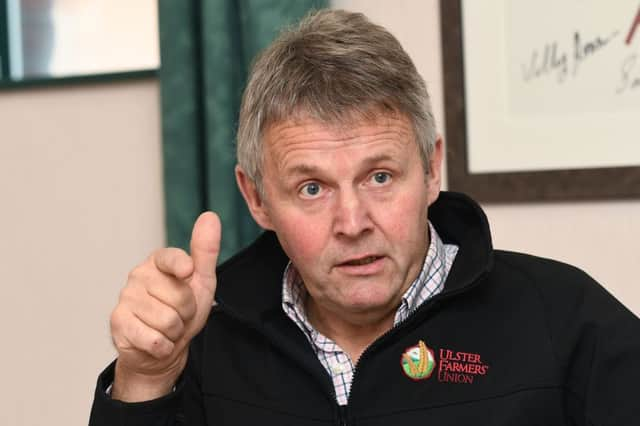Union calls for disease levy to tackle bovine TB


The suggestion of a ‘Bovine Disease Levy’ was a key part of the UFU response to DAERA’s consultation on the TB Strategic Partnership Group’s recommendations to eradicate TB.
The UFU says this new levy would be controlled by farmers, who would agree the level of the levy and decide spending priorities.
Advertisement
Hide AdAdvertisement
Hide AdIt would be collected and managed by an industry body, such as Animal Health and Welfare NI (AHWNI). The levy would initially be used to focus specifically on tackling TB in the wildlife reservoir.
Mr Bell said: “Farmers are fed up with TB. We have been clear that tackling the disease in wildlife, which is the other major factor in the continuation of this disease, must be a top priority.
“After much discussion with members and considering the financial situation at Stormont, the consensus is that if there is to be meaningful action to tackle TB in wildlife, industry has to step up.”
The total amount of funding required would be dependent on the extent of the wildlife intervention programme but could range from £1 to £3 a head for cattle and would be based on average cattle numbers during the year.
Advertisement
Hide AdAdvertisement
Hide AdDepending on progress in controlling bovine TB the levy could either cease or be diverted to an alternative disease priority.
UFU president, Barclay Bell, said the need to take a radical approach to TB was the main talking point at winter road-shows.
He said: “In terms of funding this new approach, cutting compensation or forcing farmers to pay for testing is unacceptable.
“We see a levy as a fairer and more sustainable option – and one that would give farmers a big say in how the money is spent. It is also a less expensive option than paying for testing, which costs around £3.20 per head.
Advertisement
Hide AdAdvertisement
Hide Ad“Members are in agreement that something has to change and radical and ground-breaking thinking is required on all sides.
“Other countries, such as the Republic of Ireland, New Zealand, and England had to take tough decisions when it came to addressing TB in wildlife.
“It’s no coincidence that they are seeing a decline in their incidences of TB.
“By proposing to help fund wildlife intervention, the farming industry are clearly demonstrating their commitment to eradicate this long-standing chronic disease of both cattle and wildlife once and for all,” said Mr Bell.